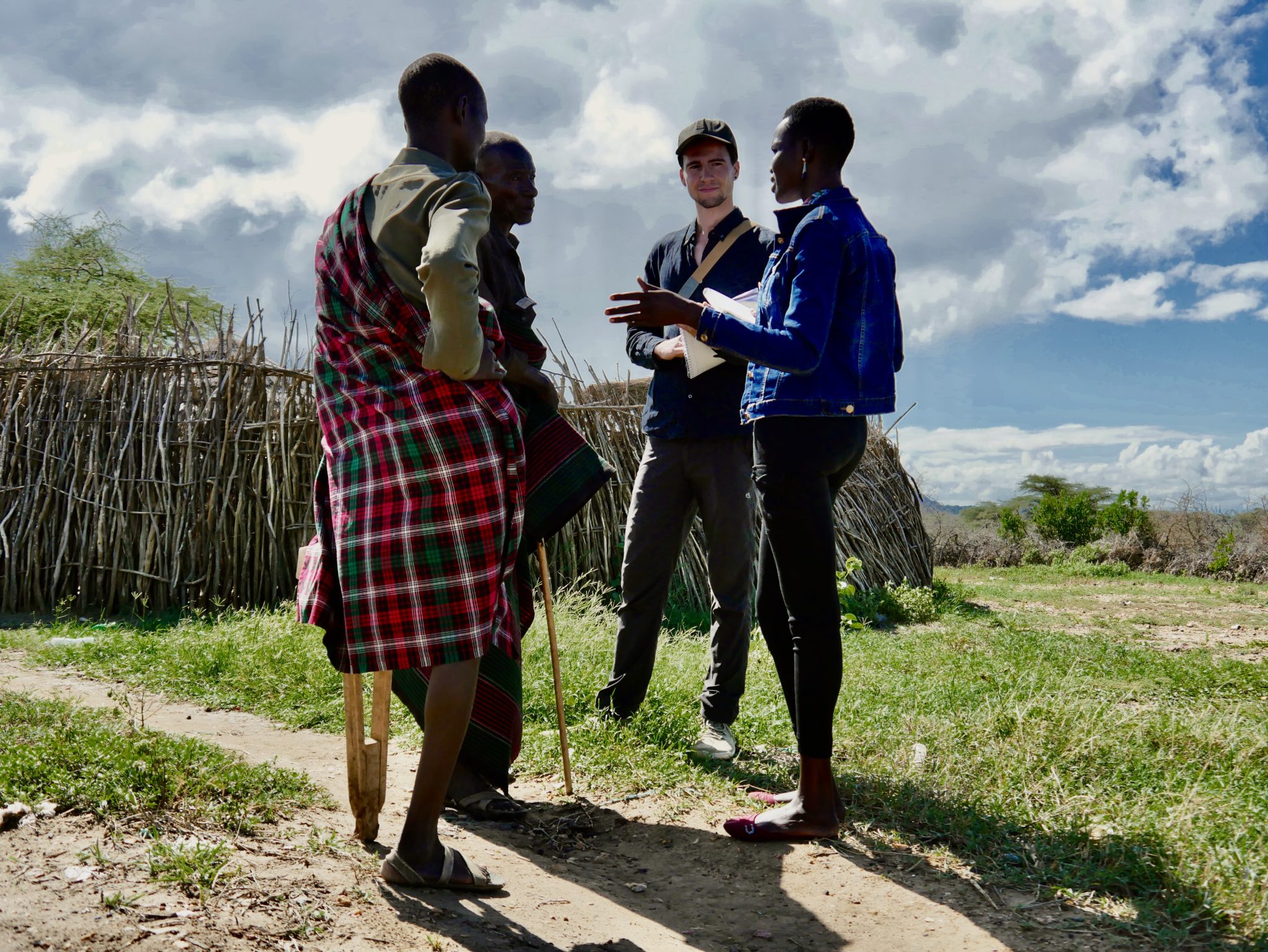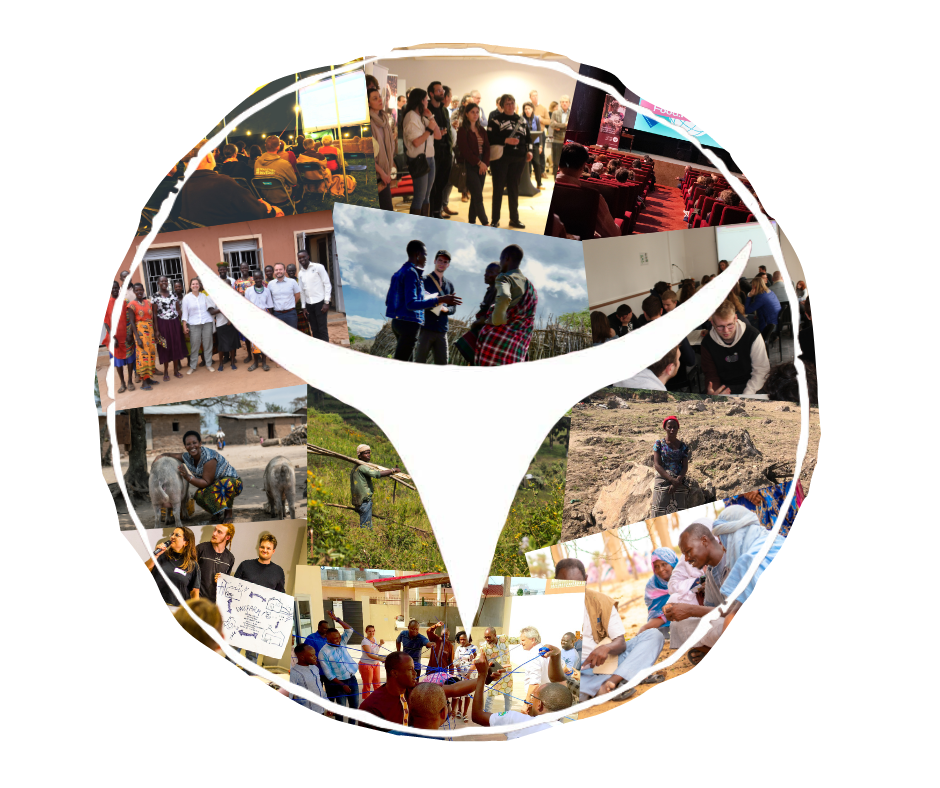The end of the year is in sight, making this the perfect moment to look back on our efforts over the past year.
For our review of 2023, we have made a selection of 13 highlights that defined the past twelve months.
See you in the new year!
January
New Year’s reception
In January, we held our annual New Year’s reception at our offices in Brussels. It was an opportunity to present our activities to our donors, partners and former colleagues, and to thank them for their interest and their contribution to the success of our organisation’s mission.
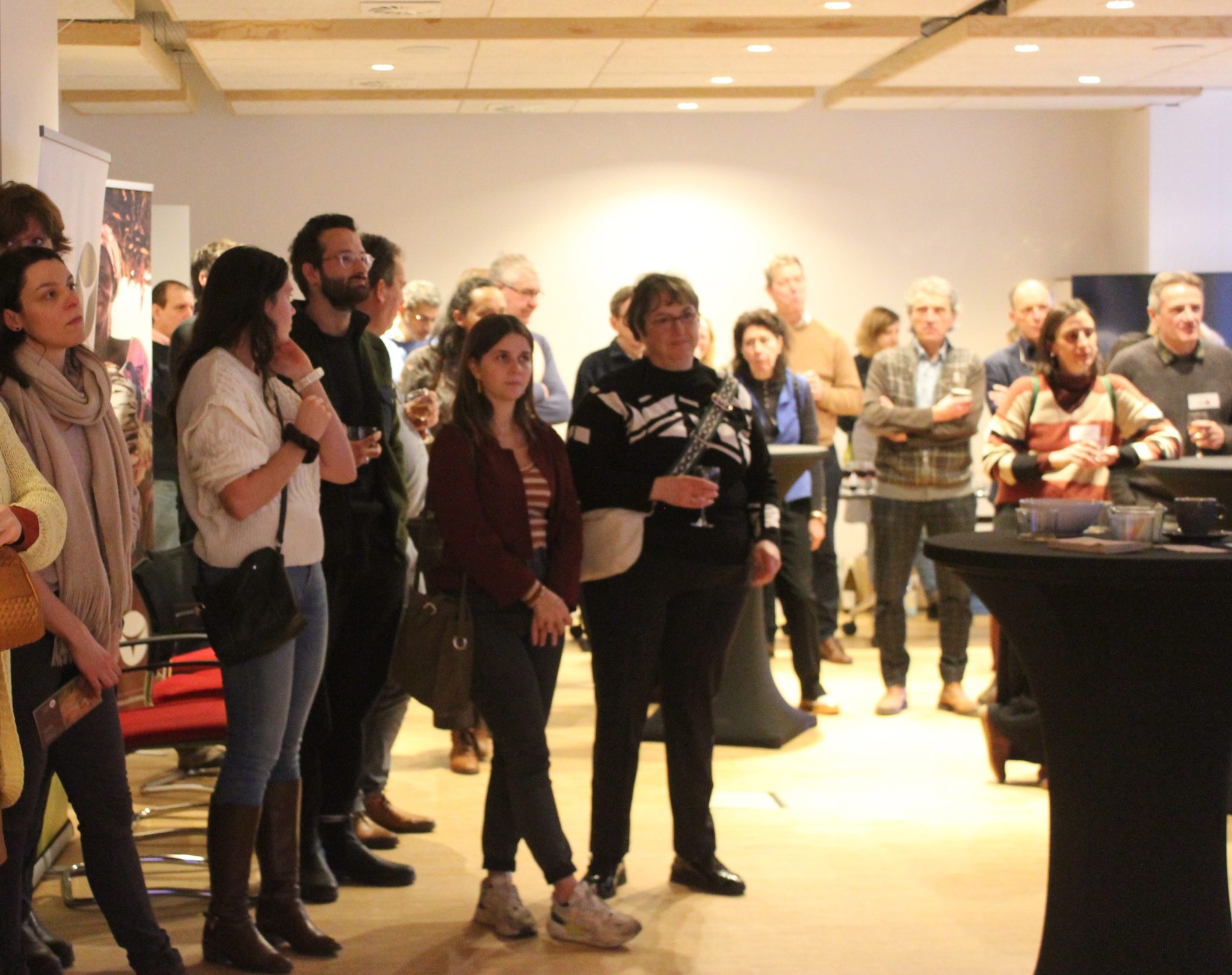
February
First edition of Demi-Journée d’Échanges sur la Souveraineté Alimentaire
February started with new activities on the veterinary studies campus at the UCLouvain. We teamed up with Humundi and Uni4Coop to organise a half-day of dialogue on food sovereignty (a ‘DJESA’), during which students could participate in discussions about food sovereignty. The aim of the event was to encourage students to think critically about the impact of our current agricultural and food system, and to raise awareness about how we consume food.
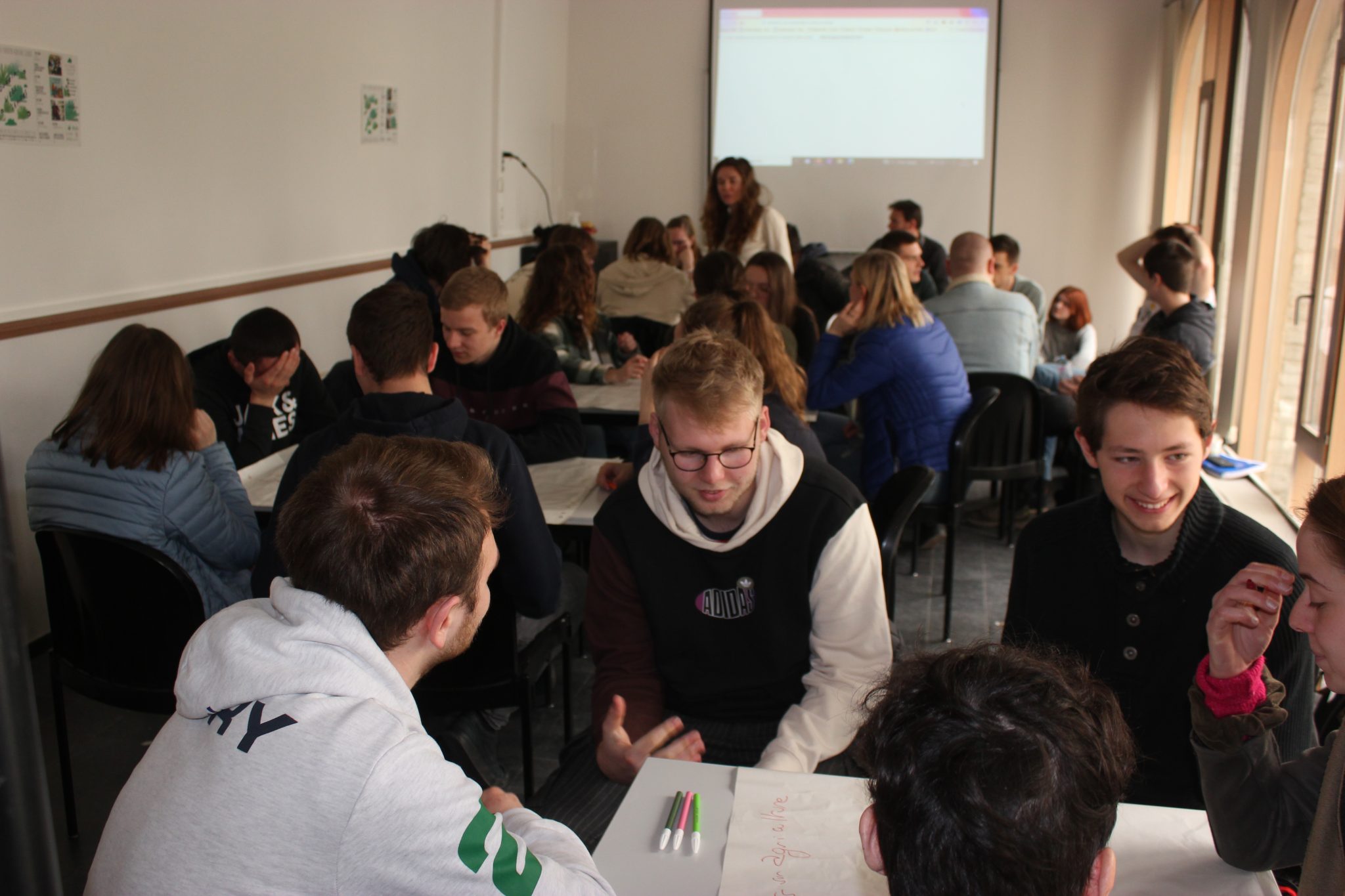
Visit of our humanitarian operations in Uganda
Karamoja, a region in north-eastern Uganda, has been plagued by a new flare-up in ethnic conflicts and hunger over the past years. Needs there are high, so last year we started up humanitarian campaigns that have been made possible with support from the Belgian government, specifically the Directorate General for Development Cooperation and Humanitarian Aid (DGD). In February, their central management visited our projects in Uganda to observe the impact of these initiatives.
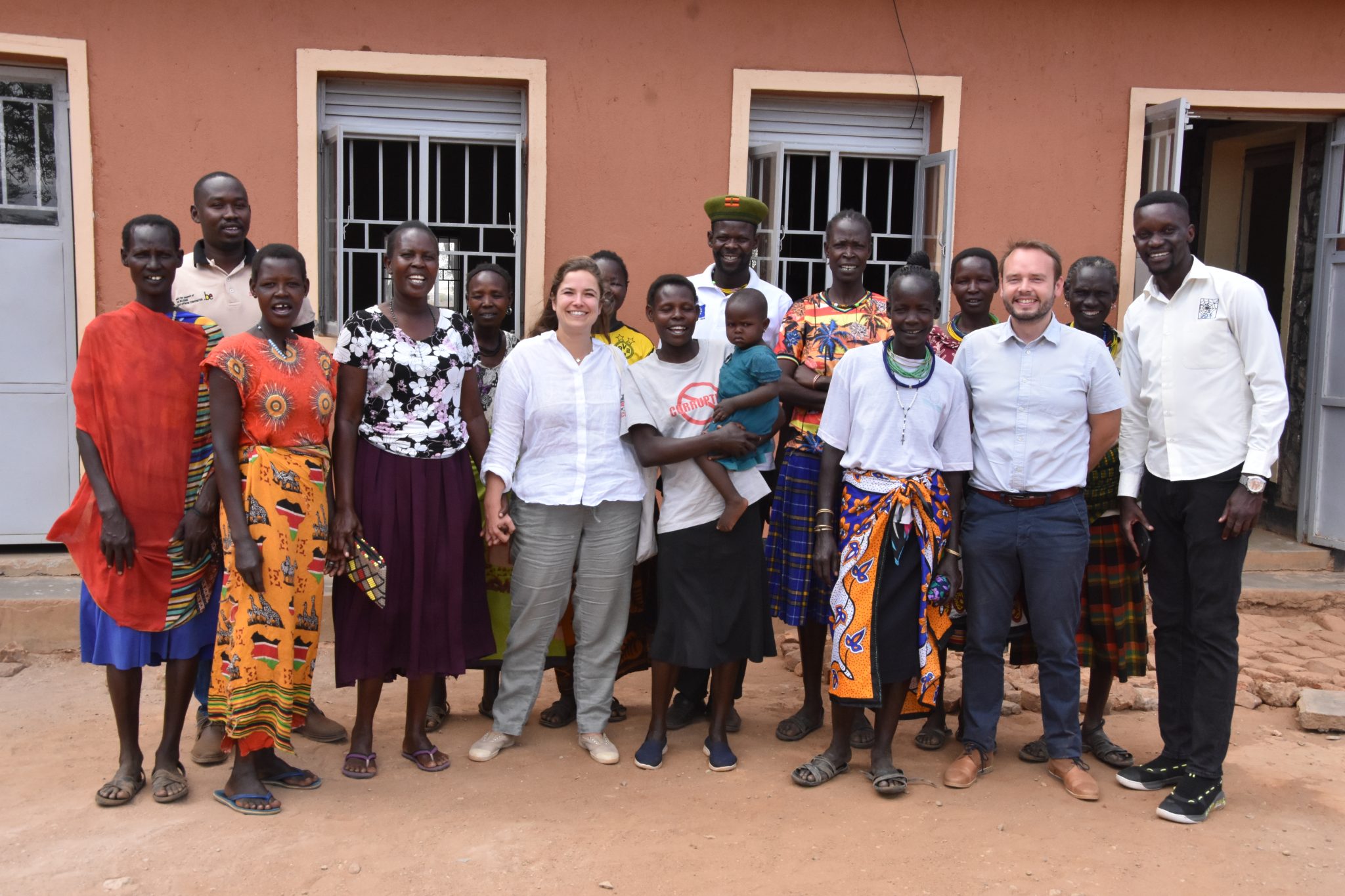
The future of food
Students from various study programmes at Ghent University and HOGENT met up in February for an inspiring day on the future of our food. The key question for the event was: how can we guarantee access to healthy food for everyone without putting undue strain on the environment? The students were challenged to come up with creative, innovative responses to this question. Supported by experts, they engaged actively with the transition to a resilient food system for the future.
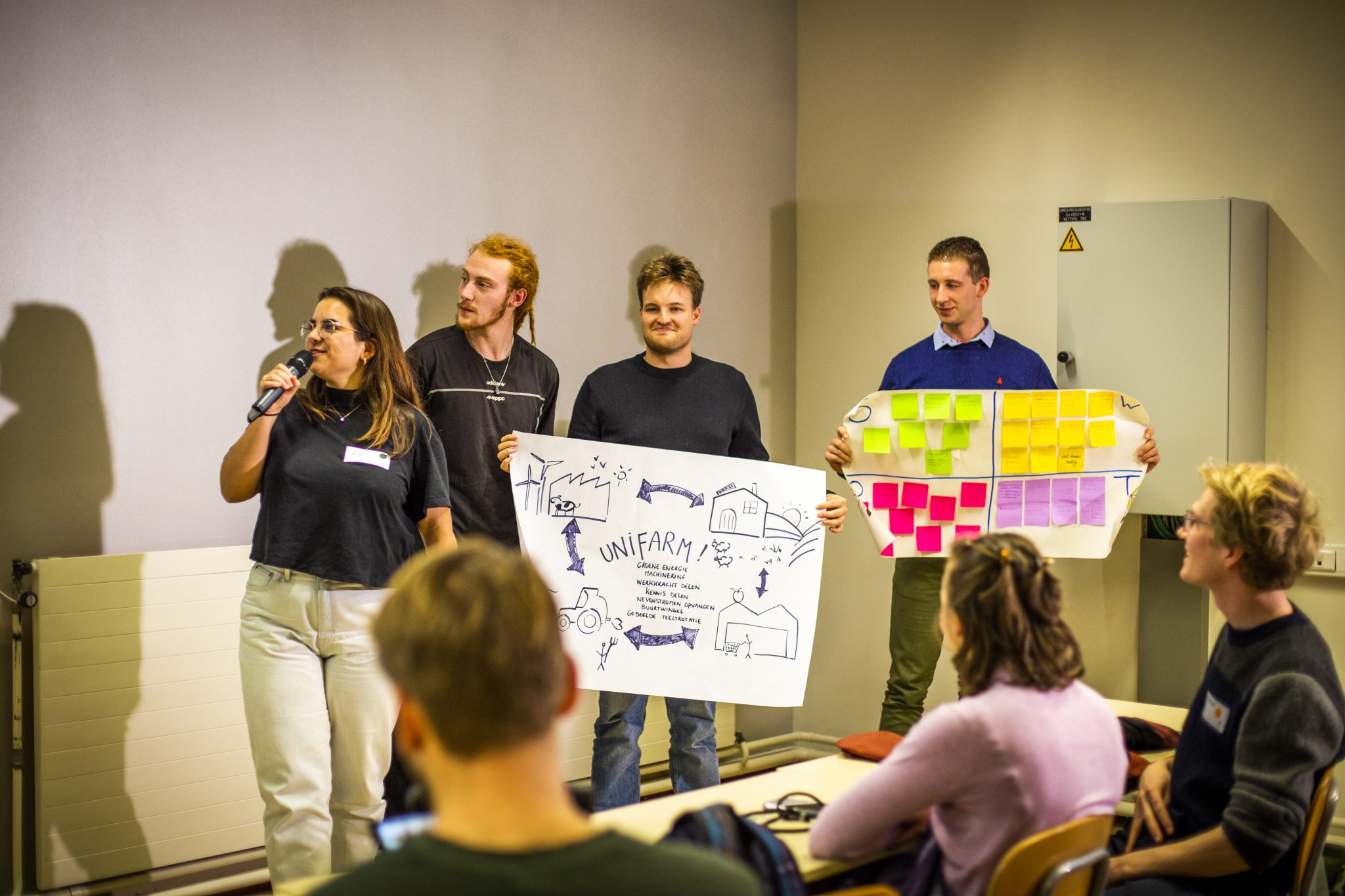
© Fien Boone
March
Start of a new project in Mauritania
Of all the countries in the Sahel, Mauritania has been hit the hardest by the challenges of climate change in recent years. Persistent drought alternating with catastrophic floods has made entire communities dependent on food aid to survive. We set up emergency aid schemes and organise activities such as food and cash distributions to guarantee food security. In March, our humanitarian project, supported by the European Union (European Civil Protection and Humanitarian Aid Operations) was extended for a year. In the long term, we are also investing in infrastructure to prevent further erosion and restore the land.
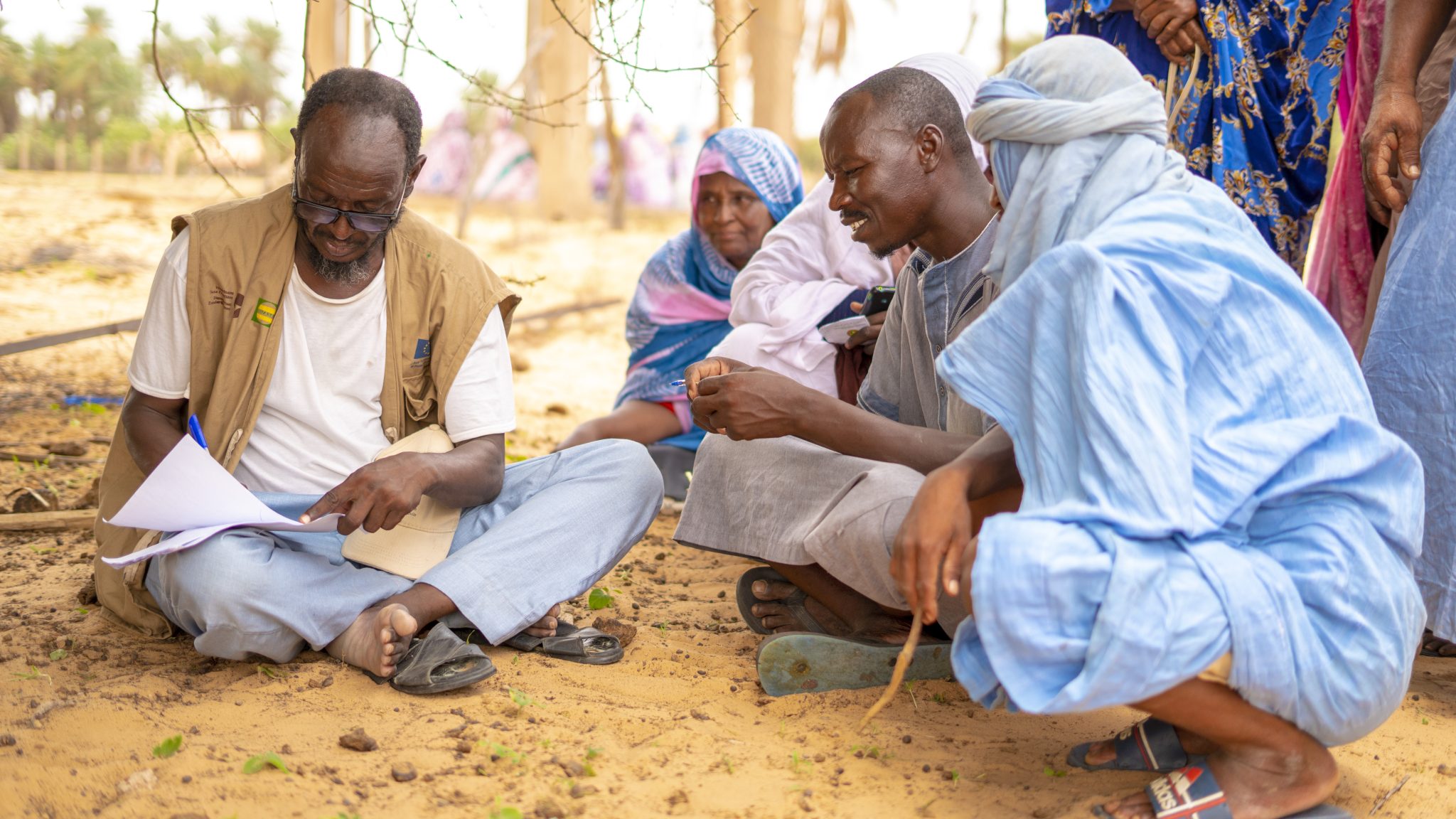
© Malika Diagana
May
Flooding in South Kivu
The month of May was overshadowed by the terrible floods in South Kivu in the Democratic Republic of Congo. In this region, where conflicts have been raging for decades, the highly vulnerable population are obliged to consume natural resources to survive. The deforestation of highland plains causes soil erosion and landslides during heavy rains. Hundreds of people lost their livestock in the floods, and consequently also their only source of food and income. To support them, we organised a campaign to raise emergency funds.
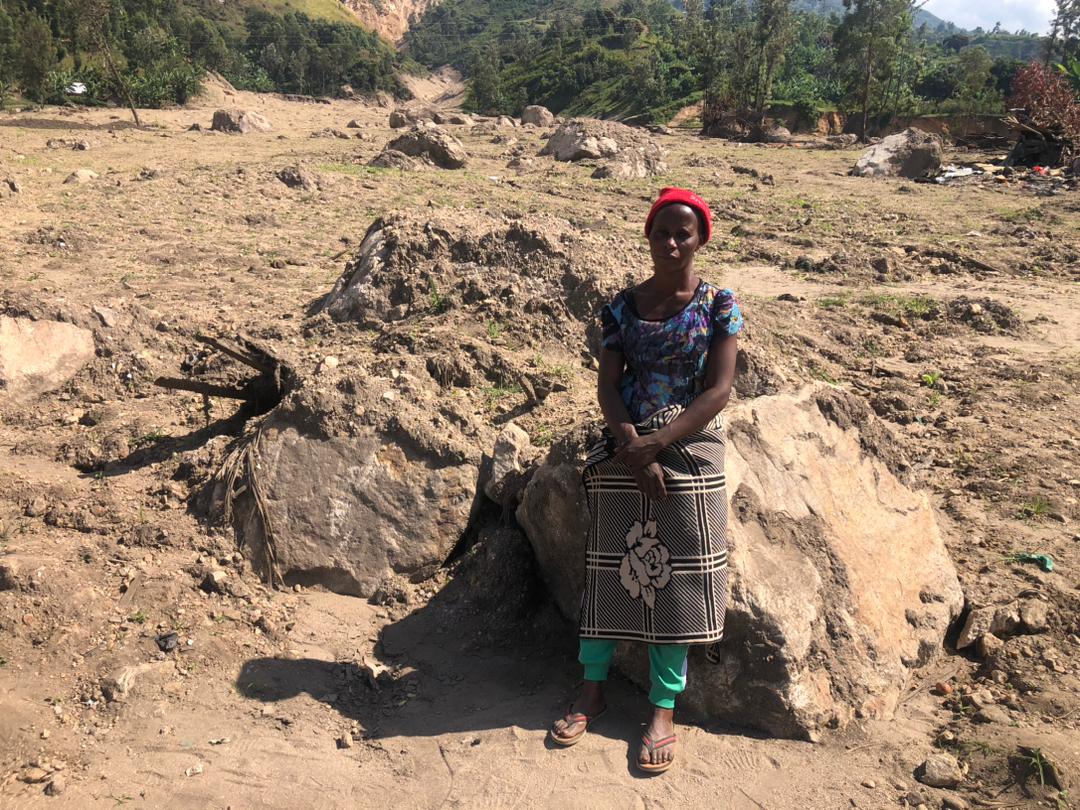
Report by La Libre Belgique on our One Health project in South Kivu
At the end of May, Sophie Devillers, a journalist from La Libre Belgique, visited our ‘One Health’ project in South Kivu, in the Democratic Republic of Congo. As part of this project, we are working to prevent the transmission of diseases from animals to humans in order to avoid future pandemics. In collaboration with Médecins du Monde and local partner Action pour le Développement des Milieux Ruraux, we are focusing on protecting human, animal and environmental health, which are all closely linked.
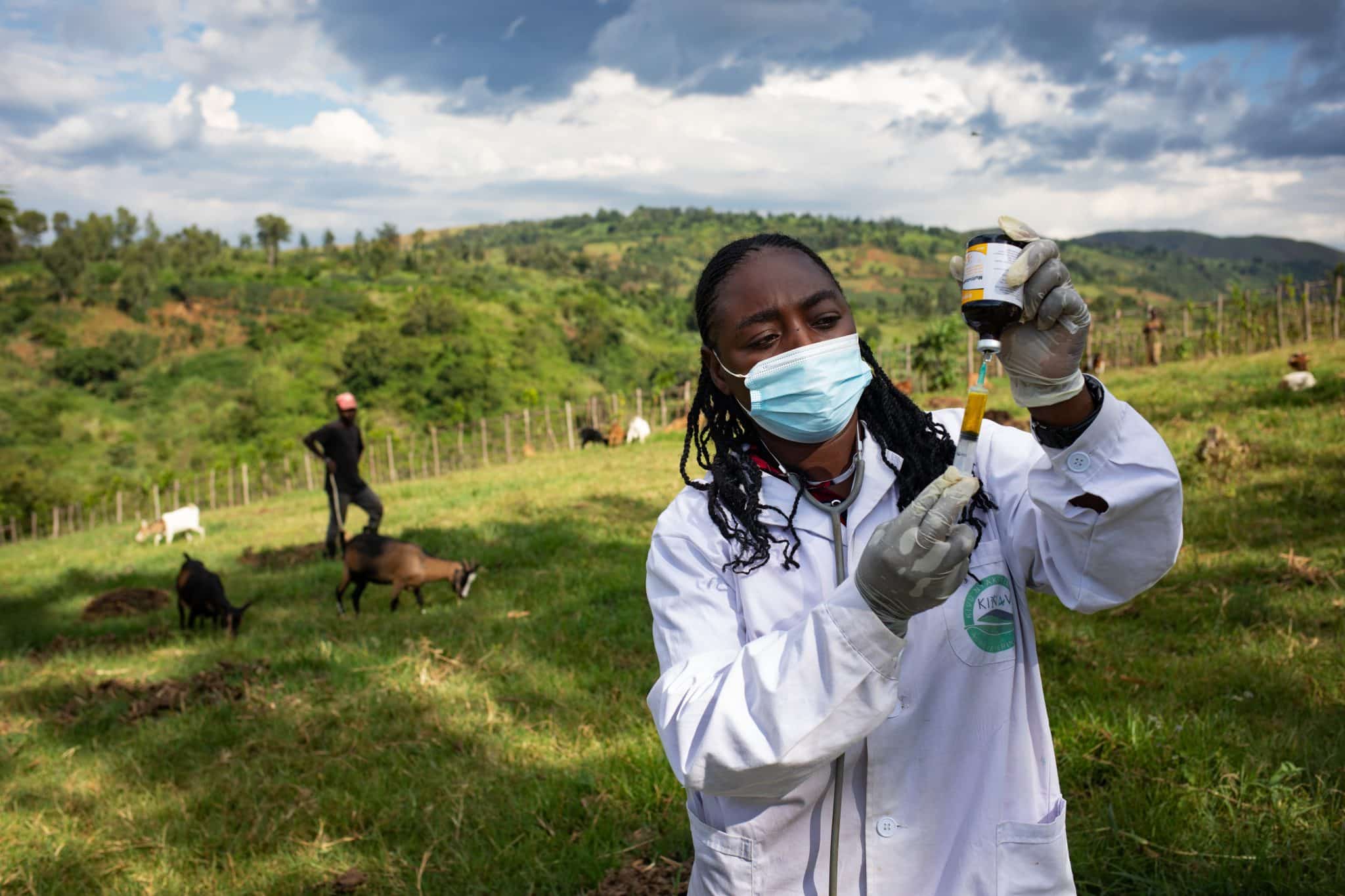
© Thomas Cytrynowicz
September
Workshop in Benin
In September, colleagues from our head office in Brussels met up with directors and staff from all the countries where we are active. They participated in various workshops together to explore how we can measure the emancipation of women better in our activities, learn to use the new database of the UN Food and Agriculture Organisation (FAO) and brainstorm on improving our operational communications. This is how we are working towards One TEAM: Together Everyone Achieves More!
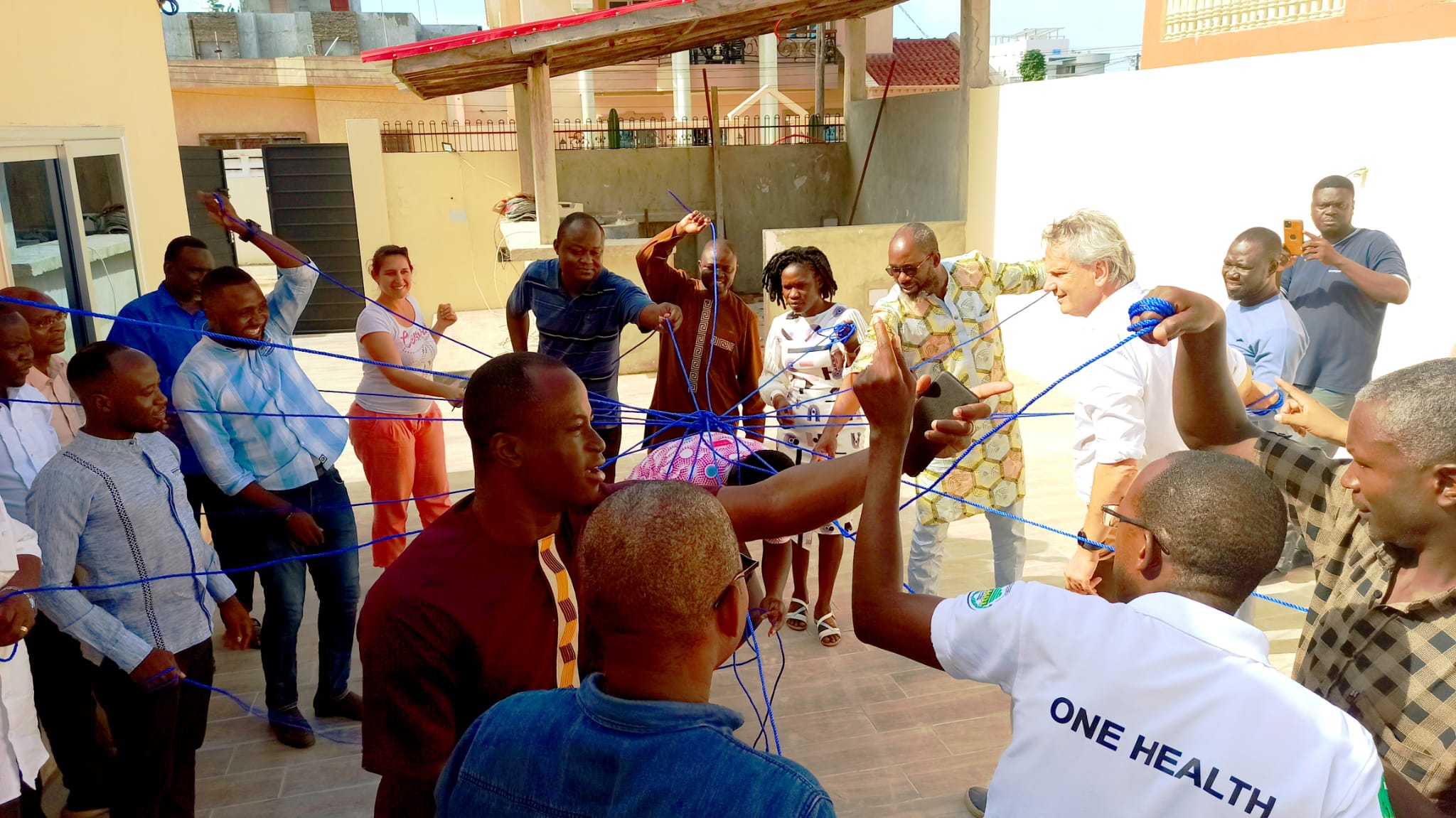
Film in het Bos
An open-air cinema was set up in the beautiful surroundings of the Gentbrugse Meersen nature reserve, in partnership with the City of Ghent and according to a concept by BOS+. The event offered an unusual perspective on the connection between livestock keeping and nature conservation. The evening began with walks through the nature reserve to find out more about how innovative visions for farming can have a positive impact on the local ecosystem. Afterwards, there was a discussion and film showing.
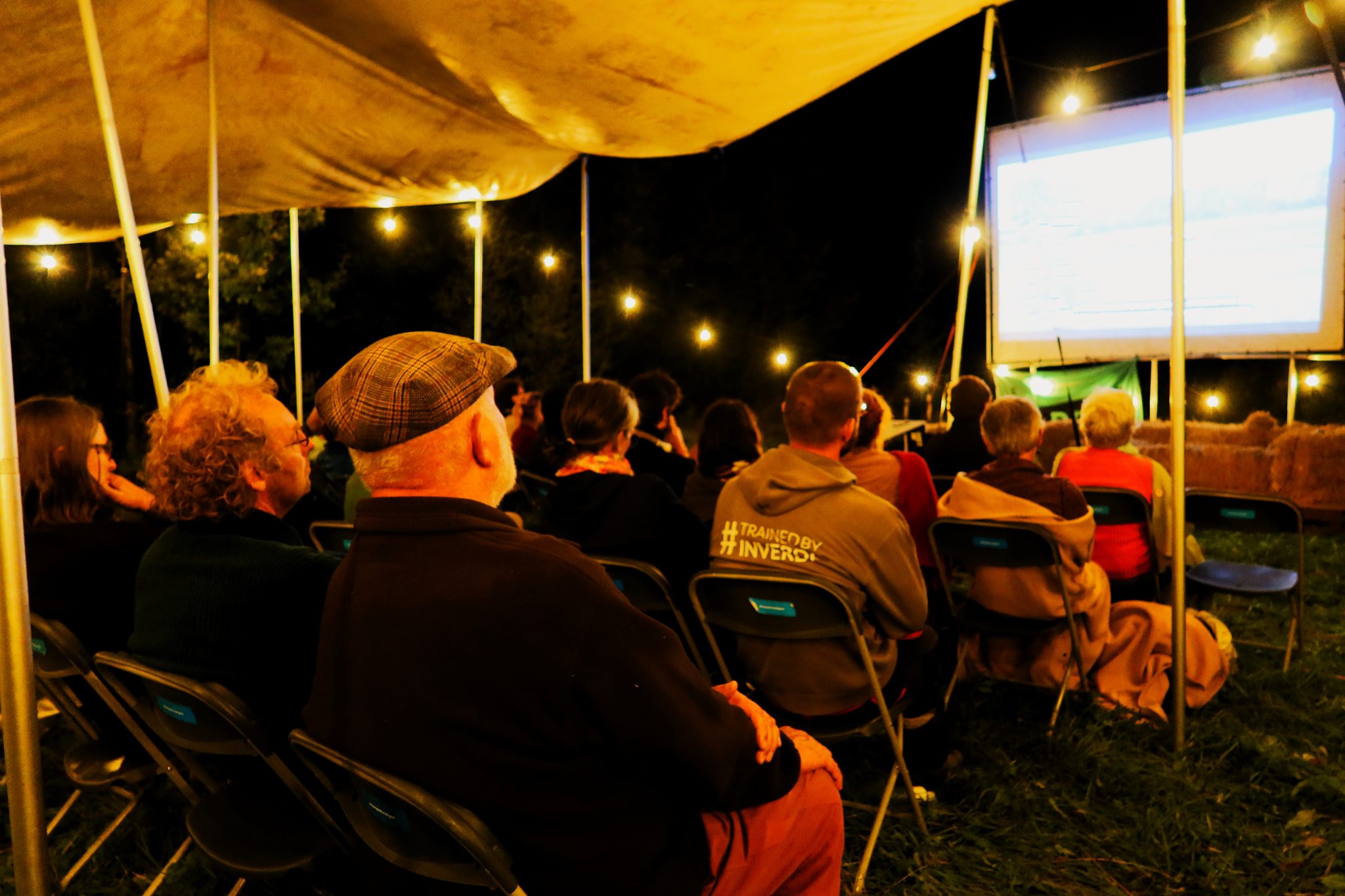
October
Hamado Ouedraogo, Country Director in Burkina Faso, visits Belgium
In October, Hamado Ouedraogo, our Country Director in Burkina Faso, paid a visit to Belgium. During his stay, he took part in various activities in Brussels and Wallonia aimed at the general public, students and donors. Alongside epidemiologist Marius Gilbert, he was also the guest to speak on ways to prevent future pandemics at a conference-debate organised by the service clubs in the Marche-en-Famenne region. The event raised €7,700 for our organisation! We also took advantage of the opportunity to talk to him about pastoral livestock keeping, a resilient system in Burkina Faso that is nonetheless under threat. Read more about it in this article.
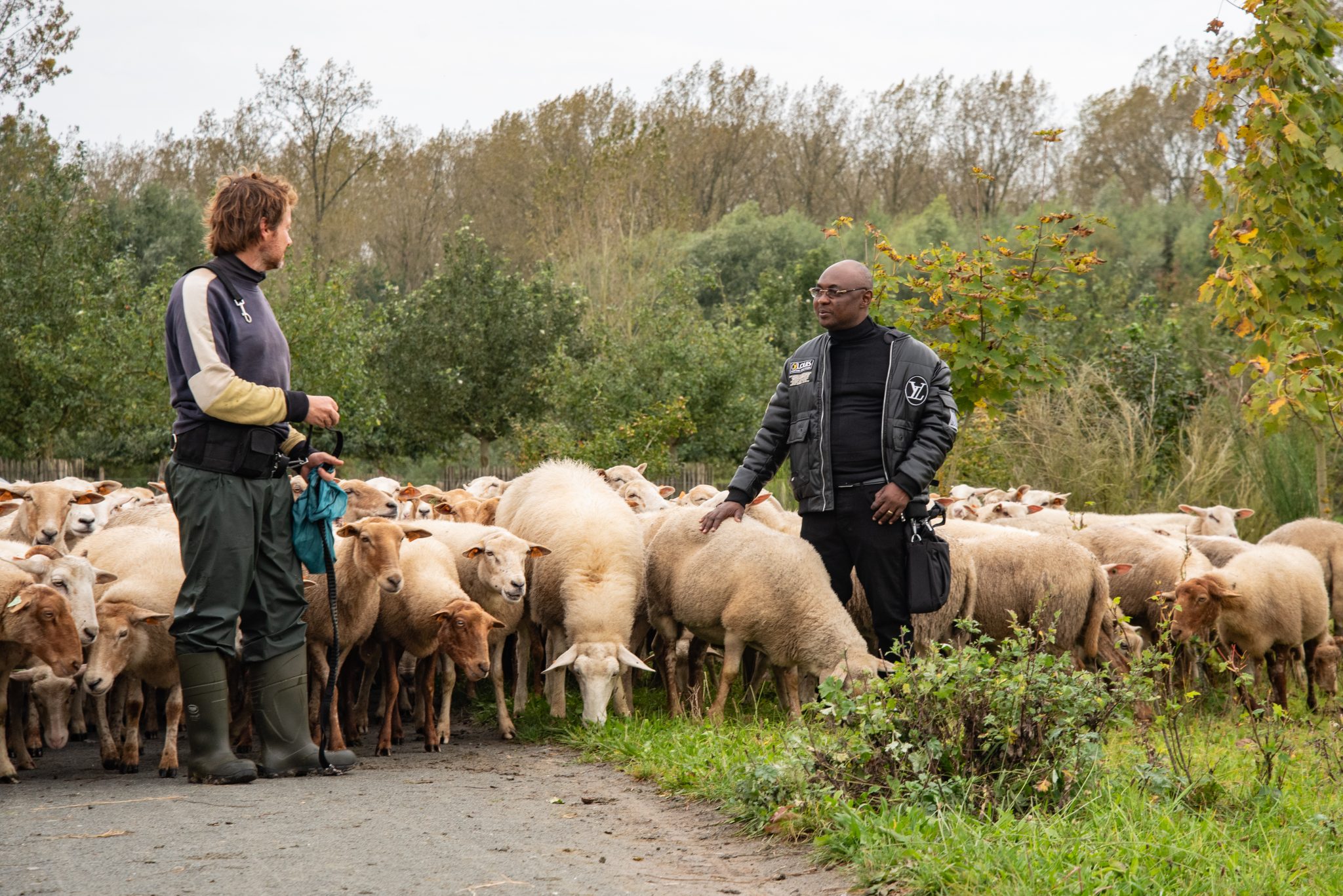
November
Renewed support for our humanitarian activities
At the beginning of November, a new humanitarian programme began in the Democratic Republic of Congo, Uganda, Niger and Burkina Faso. It is a protection programme focused on livestock keeping to help more than 50,000 people, most of them displaced. The Belgian Development Cooperation , which financed the first phase of this programme from October 2021 to 2023, has renewed its trust in us for another two years. To find out more about how we support displaced people in South Kivu, click here.
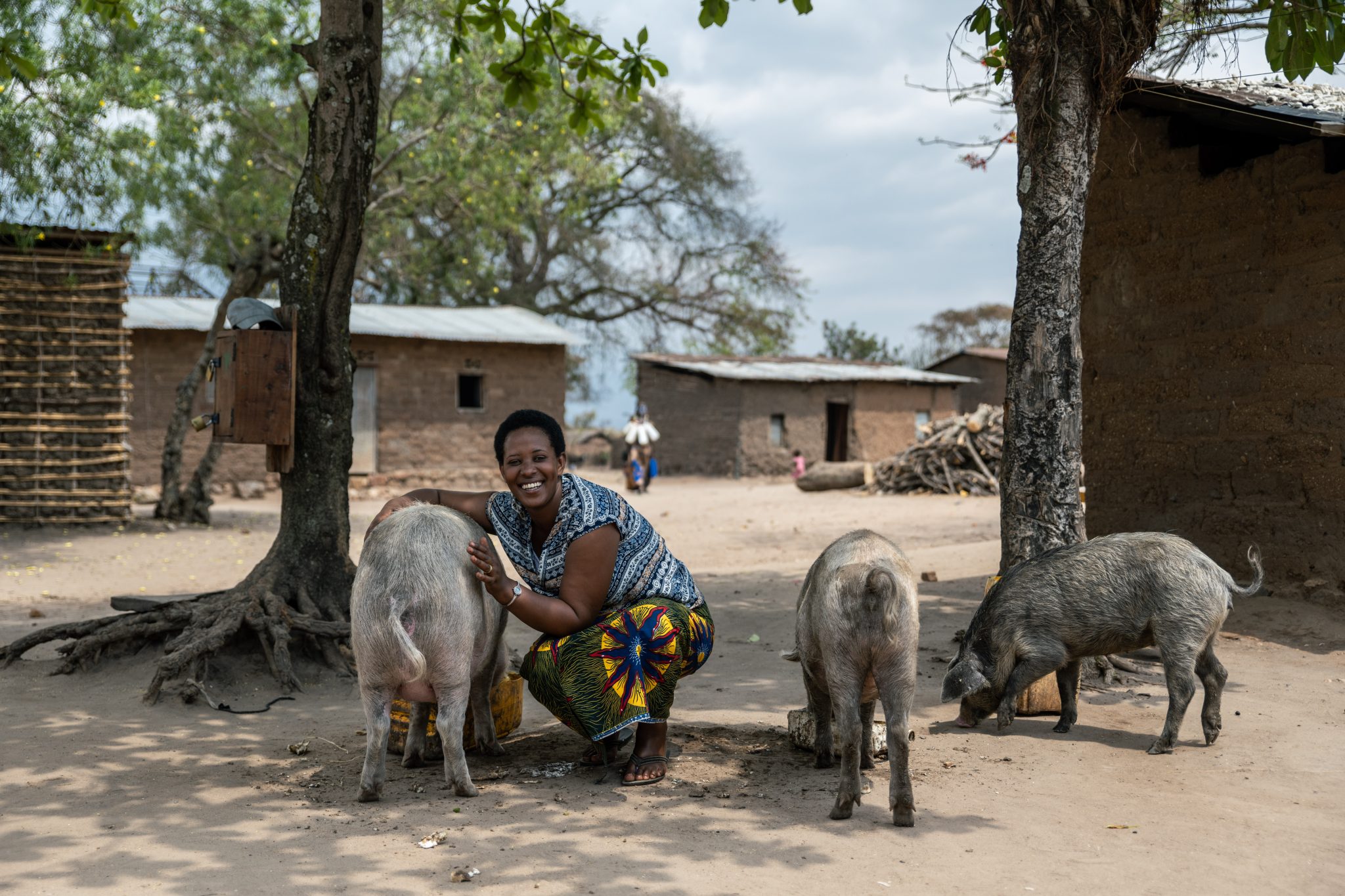
© Arlette Bashizi
Food.Film.Fest.
With more than 120 film showings in Flanders and the Netherlands, the Food.Film.Fest by VoedselAnders was a great success again this time round. As a co-curator and member of the core team, we can look back proudly on this third edition of the festival, and we are already looking forward to next year! We ourselves organised a showing at the Studio Skoop movie theatre in Ghent, in partnership with WWF Belgium. We showed the film ‘Sur Le Champ’, followed by a debate on the opportunities and challenges presented by a transition to an agroecological food system. Joost Dessein (Faculty of Bioscience Engineering, Ghent University) engaged in conversation with Bertjan Olivier (Menapii), Pierre-Alexandre Billiet (Gondola) and Marjolein Visser (ULB). Find out more about the event and debate.
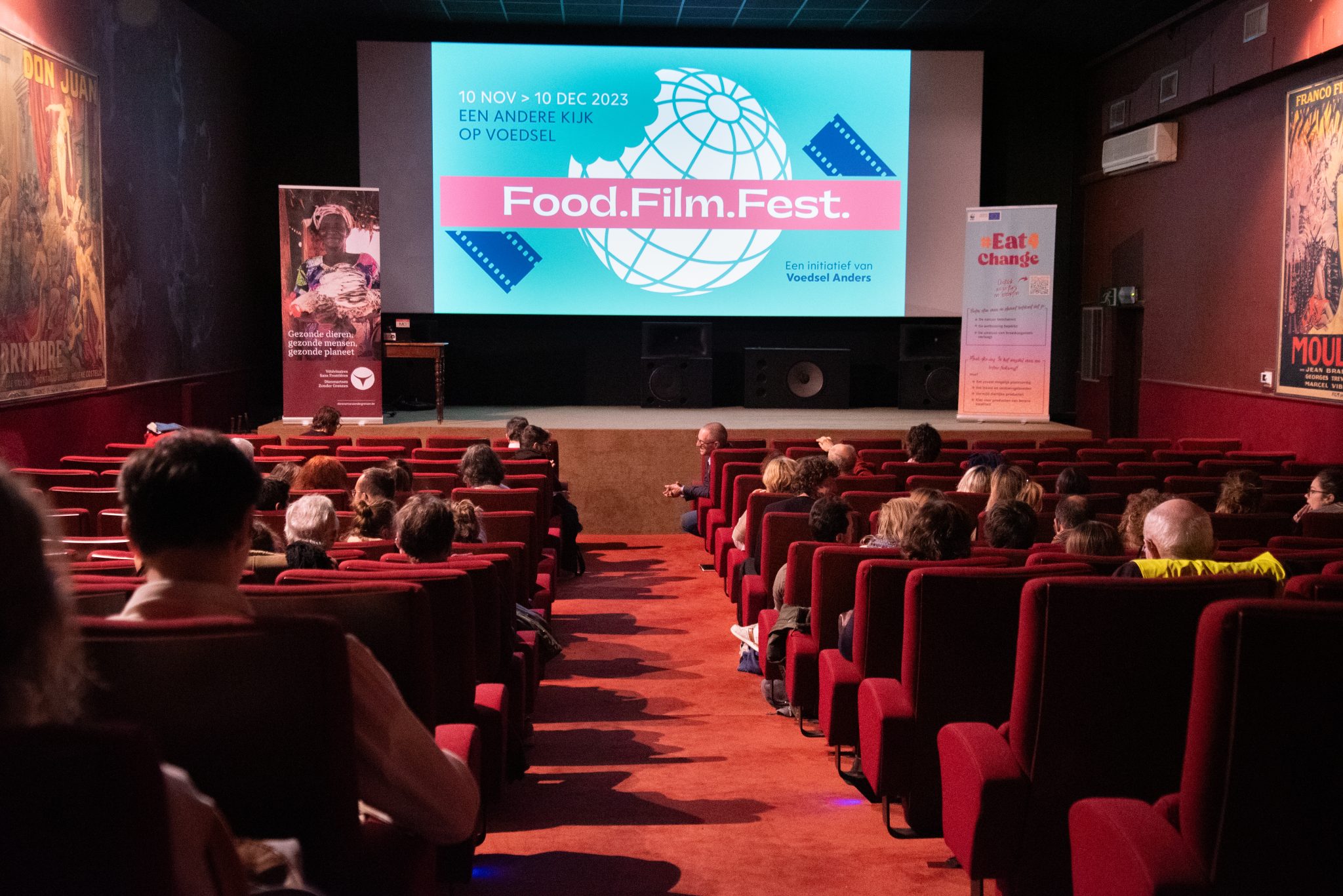
Stages à Bruxelles et sur le terrain
We welcomed five enthusiastic interns to our head office in Brussels in 2023. Two students also completed their fieldwork for their master’s research in Rwanda and Uganda. In addition, three students who did extensive research in 2022 in partnership with our teams in Rwanda successfully defended their theses. Emma deserves a special mention, as her thesis has even been nominated for the Flemish ‘Future Proef Awards’.
